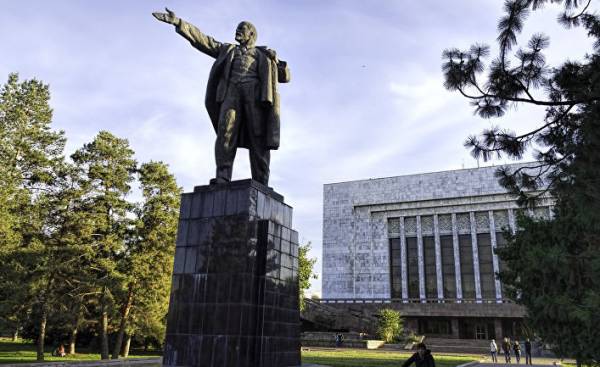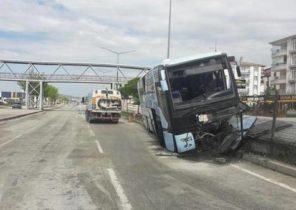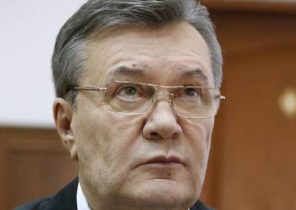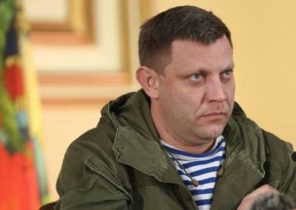
Aziz was born thousands of kilometers from the red square, but firmly believed in the Soviet Union. “It was my country, and the other I didn’t.” Then the country broke up. 25 years ago. But Aziz, who by that time had became an engineer, didn’t even know. Probably because at that time she was scrounging in the junkyard and was looking for something that can be sold. This story is from a distant world, primarily about how to live (not)possible.
The exact date Aziz Abdirasulova doesn’t remember and says it was “around the end of 1992,” was a nasty winter, and unpleasant the wind was blowing.
That day Aziza, engineer not even one, but two awards, standing on a dirty city market, as in other days. She sold the seeds in plastic bags, which are made of Newspapers. “And in one of these Newspapers, I saw the band with the Kyrgyz flag and a huge headline “the Era of capitalism.” I froze the blood in his veins. “They went crazy?” — I asked myself. What do they write? Because something like that we in the USSR are planted!”
We in the Soviet Union…
But no, the Soviet Union was gone for almost a year: the red Empire officially ceased to exist in December 1991.
“No, I seriously didn’t know about that I says Aziz. — From a modern point of view it seems incredible that you could not know something so very important. But then… first, we had nothing. No TV, no radio. We didn’t have even the dishes and linens. Just imagine: all sold. Poverty was terrible, unemployment and constant hunger. To get bread for our children — that was most important. And politics? You to it if your child may not survive the winter?”
And, says Aziz, Kyrgyzstan is not the navel of the earth. Moscow is far away! “Think about the collapse of the Soviet Union did not know the majority of the population”.
Today Aziza Abdirasulova, of which 58 years, probably the most famous and active human rights activist in Central Asia. It has TV, radio, tableware, and linens. She has also the gift of the storyteller.
Speaker box
Central Asia is a special corner of the planet. It is difficult to understand. It’s harsh, but captivating.
In five republics, who for the most part of the 20th century, subordinate to Moscow, wild East as if met with Soviet stamps. The endless steppe with dull prefabricated houses. Scheherazade, with a Bitter. Despite their large sizes, during the Soviet era republics such as Turkmenistan or Kyrgyzstan, was considered a hopeless province, a backward region of melon, green tea and gold teeth, where and are almost exclusively as a punishment.
Aziz was born in 1958 in the village in the South of Kyrgyzstan and was the fourth child of six in the family. “How we lived? Electricity in our village had only 1966, and before that we used kerosene lamps. When I was in first grade, I didn’t even have a portfolio. Handles we also were not: they appeared only in the 70s. the First TV in the village neighbor bought in 1969. I found it strange that this strange box, people say!”
In 1969 his mother died, after which she five years old was sick most of the time spent in hospitals and nursing homes, sometimes far from family: “It taught me to make independent decisions”.
In 1975 Aziz went to study at the Institute at the faculty of electrical engineering in the city of Mailuu-Suu. “After graduation I started working at the local electrical plant. During the Soviet era industry in Kyrgyzstan was retarded, but this plant worked. It was a huge dump. 30 years it grew, and nobody was paying attention. And then, in the early 90-ies, the factory was closed, and left a crowd of unemployed people and tons of debris. And people went to the dump all over the city. We. We went through it, hoping to find something that can be sold. I was living in a nightmare. For six or seven years, I still could not understand what happened to my country. But I’m getting ahead of myself…”
In 1978, Aziz, married, and in 1984, when she and her husband briefly went to work in the Siberian Tomsk, they already had three children. In Siberia Aziz graduated from a second Institute, becoming a construction engineer. “I graduated in 1988, and two years later the Soviet Union began to fall apart”.
The secret
In the world to meet Lenin, Stalin and Brezhnev. “Vladimir Ilyich — Lenin asked, what on Earth built?” — “Nothing! I haven’t built anything!” — meets Lenin. “Joseph Vissarionovich, do you?” “Nothing!” — Stalin said. “And you, Leonid Ilyich? What you built?” “Well, I’m nothing!” — meets Brezhnev. “Then what is this Gorbachev, pray tell, is restructuring?”
“And such jokes were many, says Aziz. — But seriously… We’re in Kyrgyzstan, Gorbachev did not like, because he destroyed the Soviet Union! You know, we always, God knows why, thought that I live in the most beautiful country that we are the happiest people on the planet. We all did the same, everyone was, or was not, one and the same. We lived from paycheck to paycheck and told myself that it should be. I even never had any internal protest. And my family? They firmly believed in Stalin!”
In 1991, there was one incredible story. When Kyrgyzstan became independent, some of the Babur Abakanova turned 61 years old. Her health deteriorated, she was constantly ill and always very afraid that they will die and take his secret to the grave. So she decided to tell all.
She brought the representatives of the Kyrgyz authorities in the quiet village of Chon-Tash, South of Bishkek. In 30-ies there was a sanatorium for officers of the NKVD, and Babur remembered it all as if left here yesterday: her father was the head of the sanatorium.
And it was in the early 80-ies, when dying, told Babur that in November 1938, the NKVD shot in the village of dozens of people. It was the Kyrgyz intellectuals and the party elite and representatives of several other Nations, including, by the way, poles, Czechs and Slovaks.
Father Babury, of course, nothing was supposed to know about the mass execution, but he did. For 40 years he was silent and only on his deathbed, confided in her daughter. He demanded: “You also keep your mouth shut, Babur, until the collapse of the Soviet regime!”
Excavations began in the spring as soon as the earth melted. The word Babury confirmed: on the territory of a brick factory near the former sanatorium was discovered a mass grave with the remains of 137 people.
As for Stalin’s terror, and Central Asia, the backward edge of the melon, green tea and gold teeth, was not so far from Moscow.
Chupa Chups
“In our country: if the government is weak, crime raises its head, says Aziz. — Then, in 90-e years, crime has also grown incredibly. Laws do not seem to exist, the bandits came to the dump, about which I spoke to you, and take it with desperate people tribute for her “use”. And the police? Imagine the situation: I come to the market. In the bag my items for sale. Do you remember the gum Chupa Chups? I stopped by the police and searched, and when he finds the money, then immediately takes it away. I even try to take the gum I wanted to sell. And as a mother, I know that if I will take them, that night I do not have anything to buy bread for children”.
The life that was familiar to Aziza, a fully collapsed. All that was before, like in the blink of an eye ceased to exist. The killings began in early summer 1990 in Osh in the South of the country sparked ethnic conflict between Kyrgyz and Uzbeks. It killed thousands of people.
The future has been reduced to “survive tomorrow.” Aziz said that two of her younger children, who were born in the 1990 and 1992 was very small and skinny for his age.
“We worked 16 hours a day. And all in vain. My high school diploma was no good: to find a job was simply impossible. The industry was falling apart, nothing was built. Every day was a struggle for existence. Finally I realized that to live is simply impossible”.
November 1996. Aziz Packed up and left distressed Mailuu-Suu in the capital — Bishkek.
To find a job, any job. Earn money. To bring the family. To start from scratch. Again.
A simple pencil
“It would be easier to talk about what I’m in Bishkek did not do,” laughed Aziz. She started with the main market a little less dirty than in Mailuu-Suu. Some days she couldn’t find it and almost gave up because each new day without a job meant, above all, a new day without the kids. But she finally met a compassionate young man who shared with her their “business” with colorful packages. (“Then it was a real hit.”)
“He saved me! Then I started to sell other things, such as sweets. I worked in a bakery and a seamstress. Then I sculpted the manta rays. In General, doing all that turned up. The first six weeks I slept in the bunkhouse, and then when the children came, I found a room in a hostel.
Aziza recalls the daily tragedies of the time: kids who sat all day in cardboard boxes in frozen sidewalk and begging, their mothers committed suicide, the victims of police brutality. “Only today I realized that in that time I began to form a kind of citizenship. It was then that I started to think about what a person has in life right. We ourselves have been through a lot, we were refugees, strangers in the capital. Local all the time chased us to “Get the hell back where you came from!” We had to give bribes everywhere: at school, at the doctor, institutions. Felt constant humiliation.”
And then, one night when the children are asleep, Aziz took a pencil, yellowed school notebook and wrote about the feeling of humiliation.
“I started to write short critical texts on social issues, and sometimes even poems and stories, but for the most part of the article. I did it for myself, for my soul. It helped me to understand what is actually happening”.
Even then, in Kyrgyzstan, published a newspaper called Res Publica. The opposition, a critical newspaper, very popular, especially in Bishkek. Aziz, constant reader, I found the room address of the editorial office and carried back one of his articles, written in pencil. “It was in 1998. I just put it there and not even leave your position. A week later, look — an article published! I won’t lie: that felt good!”
As Aziz became famous
March 2000. Kyrgyzstan held parliamentary elections. They had a lot of fraud, and soon to Bishkek came thousands of disgruntled voters who decided to protest against fraud.
Aziz was at that time already became a permanent employee Res Publikа. She was a real press card (“Even with a photo!”) and a lot of friends among opposition politicians and human rights activists. Her life as a whole has become more stable. She was no longer running so much on dirty markets, and worked as a commandant of a hostel. She had a small, but stable salary. The struggle for existence has not yet ended, but it was… cruel.
“On March 16 — I remember that day was a planned large-scale demonstration. Zamira Sadykova, editor in chief Res Publikа, sent me there as a reporter.”
The arrests began, almost at a makeshift podium had to change the first speakers. Aziz was in the office in the city centre, in a small cold cell with 15 demonstrators. “We were kept there for two days, not allowed to eat and drink were not allowed in the bathroom.”
On the third day began hasty trials and liberation. From 15 people in the chamber were suddenly twelve, ten, seven, two… And then Aziz was left alone.
And then it came: “You Abdrasulova Aziz, a correspondent for Res Publikа?”
“What now? Should I tell them? Will I help yourself or hurt? Whether worse follows?” — thoughts were spinning in my head Aziza.
“No. It’s not me”.
The next day came again. “You sure?” “No.”
Finally, and Aziz appeared before the court, and everything is opened. In the hall she was waiting for Zamira and other colleagues. As soon as Aziz walked in, Zamira to shout: “This is it! This is our reporter! And you claimed that she’s not here! You kidnapped her! You kidnapped a person!”
Aziz just stood there and wondered. She had no idea that during those few days Zamira managed to raise almost a national scandal. When she learned that Aziz was arrested, then started calling, and then personally to go around the police Department. Everything has gone so far that on the main TV channel in every newscast showed a picture of Aziza.
“Suddenly the whole country knew me. While I was in jail and denied everything!”
The court released Aziz. The next day the newly minted celebrity took part in the debate on developments after the elections.
It was surrounded by journalists who asked about details of the detention. “Someone shouted that I was a human rights activist. I thought this was absurd!”
Eternal candle
It took some time before Aziz Abdirasulova realized that her place is not on the market and not in the dormitory. Before she realized that she can protect others professionally and this makes sense: “human Rights? What you are up to, if your child may not survive the winter?” — I said to Aziz.
In the spring of 2003, she hosted the human rights course lasting several months, which in Kyrgyzstan was organized by Freedom House. In the same year, Aziz’s first visit abroad — in Vienna. There she became a little sad from what she saw, “as in Western Europe care about their own history, and we spit on it”.
And something else happened in that important 2003. Aziz founded his own human rights organization.
It happened like this: “I was sent to the Ministry of justice the registration statement of the Committee against torture. Ten days later I received a refusal, citing the fact that in Kyrgyzstan no torture, no. Then I sent a second request for the registration Committee for defense of political prisoners. Ten days later I received a refusal, citing the fact that in Kyrgyzstan there are no political prisoners. Then I sent a third application on the registration of human rights organizations under the name “Eternal candle”. Ten days later we received a positive decision.”
Today, Aziz has already referred to the “veterans” of human rights activities in Central Asia. In the region, which, to put it mildly, not bleshchet democracy, Aziz, in a sense, makes a famous. But it was not always so: in the past, working in the complex field of human rights, she has faced constant pressure and beatings, and surveillance. Her phone was tapped, she was threatened with death and even kidnapped the eldest son and two younger — was hit by a car. And all she had left instructions: if with it something happens, if she is arrested or something else, they should say that the family she is the outcast, with whom they have long no contact.
The struggle for life does not end. She’s just… different. Aziz not fighting for bread for his five children, and for dignity. For all.







